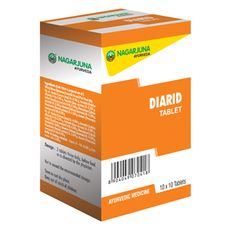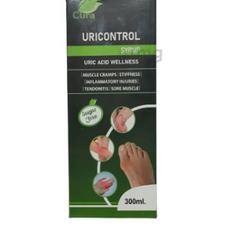 Where should we deliver your order?
Where should we deliver your order?The Diet to Prevent Cancer, Diabetes, And Make You Lose Weight

In the modern age we live in, people around the world are constantly seeking alternative diets and lifestyles in hopes of preventing serious illness and staying in shape. People seem to be more conscious than ever when it comes to their food intake, with many options now available that cater to the specific wants and needs of the individual. Lifestyle diseases are ailments that are primarily based on the day-to-day habits of people. Habits that detract people from the activity and push them towards a sedentary routine, can cause many health issues that can lead to chronic non-communicable diseases which can have near life-threatening consequences.
Lifestyle diseases include heart disease, obesity, Atherosclerosis, type 2 diabetes; and diseases associated with smoking, alcohol & drug abuse, and even cancer. When it comes to preventing lifestyle disease and maintaining one’s weight, there seems to be an evolving and rewarding diet to prevent cancer, diabetes, and lose weight worth paying attention to. Let’s talk about some lifestyle diseases and recommended diets for them.
Cancer
Cancer is the second important cause of morbidity worldwide accounting for 8.8 million deaths. Globally, nearly 1 in 6 deaths is due to cancer. Approximately 70% of deaths from cancer occur in low- and middle-income countries.
The knowledge of Sartan (cancer) in the Unani (Greco-Arabian) systems of medicine can be traced to ancient times (131-200 A.D.). Like all other diseases, its etiology has also been attributed to the combustion and imbalance of certain humor in the body. According to Unani, cancer is associated with an imbalance of black bile humor (Sauda) which is very hard to be diagnosed at early stages. It suggests the administration of an appropriate purgative remove excess black bile from the body and thereby adopting ways that prevent the generation and accumulation of black bile in blood vessels as far as possible.
Diet To Prevent Cancer
A diet high in non-starchy vegetables, such as broccoli, spinach, and beans, may protect against stomach and esophageal cancer. Eating oranges, berries, peas, peppers, dark leafy vegetables, and other foods high in Vitamin C may also protect against oesophageal cancer.
Here are some modifications you should do in your diet to prevent cancer:
● Avoid black bile (Sauda) producing diets such as red meat, dried & salted meat, and fish, etc.
● Taking soft and easily digestible diets like Oats, Porridge (Daliya), Khichri.
● Consume turmeric, tomatoes, garlic, flaxseed, spinach, broccoli, pomegranates, walnuts, etc.
● Cruciferous (leafy) vegetables (Pattedar sabziyan) such as broccoli, cauliflower, and kale contain beneficial nutrients including manganese, Vit-K it also contains Sulforaphane, a plant compound with anti-cancer properties.
● Berries-study shows that anthocyanin, which is a compound in blackberries, lowers biomarkers for colon cancer.
● Taking a diet rich in fibre (20-30gm/day).
● Avoiding a sedentary lifestyle.
● Exercising for 30-45 minutes at least five days a week.
● Avoiding mental stress and anxiety.
● Avoiding extreme emotions, e.g. anger, fear, sadness – Leading a spiritual peaceful life.
Diabetes
In 2019, an estimated 1.5 million deaths were directly caused by diabetes. Prevalence has been rising more rapidly in low and middle-income countries than in high-income countries.
In Unani medicine “Ziabetus” is the term which is used generally for diabetes, and “Ziabetus Shakari” for diabetes mellitus. In Unani philosophy, it is a disease in which the consumed water is passed out through the kidney immediately after its intake by an individual without any metabolic change. Due to the hot temperament of the kidneys, the water is absorbed from the blood circulation and sent to the urinary bladder.
As per Unani philosophy of causation of disease, it is based on Mizaji (temperamental) and Saakhti (structural) deviation. Any imbalance between Mizaj (temperament) and Saakht (structure) results in disease.
Diet To Prevent Diabetes
1. Choose healthier carbohydrates
All carbs affect blood glucose levels so it’s important to know which foods contain carbohydrates. Choose the healthier foods that contain complex carbs and be aware of your portion sizes.
Here are some healthy sources of carbohydrates:
● Whole grains like Brown rice, Buckwheat, and Whole oats.
● Fruits like Jammun, berries, Apple, kiwi, grapes.
● Vegetables like Bitter Gourd (Karela), Bottle Gourd (Lauki), Broccoli, Spinach.
● Pulses such as chickpeas, beans, and lentils.
● Dairies like unsweetened yogurt and low-fat milk.
At the same time, it’s also important to cut down on foods low in fibre such as white bread, white rice, and highly processed cereals. You can check food labels when you’re looking for foods high in fibre if you’re unsure.
2. Eat less red and processed meat
If you’re cutting down on carbs, you might start to have bigger portions of meat to fill you up. But, it’s not a good idea to do this with red and processed meat, like Ham, Bacon, Sausages, and Lamb. These all have links with heart problems and cancers.
Try swapping red and processed meat for these:
● Pulses such as beans and lentils.
● Eggs.
● Fish.
● Poultry like chicken and turkey- (non-spicy, less salty).
● Unsalted nuts (cashew, pistachio, peanuts).
3. Use fibre in diet
Beans, peas, and lentils are also very high in fibre and don’t affect your blood glucose levels too much. Most of us know that fish is good for us, but oily fish like salmon and mackerel are even better. These are rich in something called omega-3 oil, which helps protect your heart. You should try and aim to eat two portions of oily fish a week.
4. Cut down on added sugar
We know cutting out sugar can be really hard at the beginning, so small practical swaps are a good starting point when you’re trying to cut down on excess sugar. Swapping sugary drinks, energy drinks and fruit juices with water, plain milk, or tea and coffee without sugar can be a good start.
You can always try low or zero-calorie sweeteners (also known as artificial sweeteners) to help you cut back. Cutting out these added sugars can help you control your blood glucose levels and help keep your weight down.
Obesity
Obesity (Saman-e-Mufrat) has become a serious public health problem nowadays. It is a term used to describe bodyweight that is much greater than what is considered healthy. Obesity and overweight occur due to an imbalance between calories consumed and calories utilized.
The National Family Health Survey (N.F.H.S) in 2016 shows that 12.1% men and 14.8% women in India are either overweight or obese. It reduces life expectancy by 7.1 years in men and 5.8 years in women.
Diet To Lose Weight
There’s no single rule that applies to everyone, but to lose weight at a safe and sustainable rate of 0.5 to 1 kg a week. Most people are advised to reduce their energy intake by 600 calories a day. For most men, this will mean consuming no more than 1,900 calories a day, and for most women, no more than 1,400 calories a day.
The best way to achieve this is to swap unhealthy and high-energy food choices such as fast food, processed food, and sugary drinks (including alcohol) for healthier choices.
Here are the diet changes one should do to lose weight:
● Plenty of fruit and food rich in vitamin C like oranges, pineapple, grapefruit.
● Skimmed milk (low-fat milk) and dairy foods like paneer which is rich in protein with minimal or no fat.
● Legumes include Mung beans, black-eyed peas, kidney beans, lentils, pulses, and chickpeas.
● Some meat (white meat, fish) eggs, beans, and other non-dairy sources of protein.
● Try to avoid foods containing high levels of salt because they can raise your blood pressure, which can be dangerous for people who are already obese.
● Eat Healthy fats: Coconut milk, Avocado, Coconut oil, Olive oil, Sesame oil, Ghee.
You’ll also need to check the calorie information for each type of food and drink you consume to make sure you don’t go over your daily limit.
Infographic
Please find below the infographic on “The Diet That Could Starve Cancer, Prevent Diabetes, And Make You Lose Weight”. Feel free to use this infographic but make sure to cite us at www.healthybazar.com
Conclusion
All these three diseases, i.e., cancer, diabetes, and obesity (technically not a disease), are the most widespread global health concern in the present day. You can consider a diet to prevent cancer, diabetes, and weight loss. According to the Unani system of medicine, every patient should observe precaution in the form of diet for health and longevity along with the Unani medicine approach, which offers beneficial effects in the management of this disease to obtain a speedy result. Along with that cancer patients may also consider 5 Ayurvedic Herbs for Cancer Treatment in further conditions.
This article is written/approved by:
























 4
4





